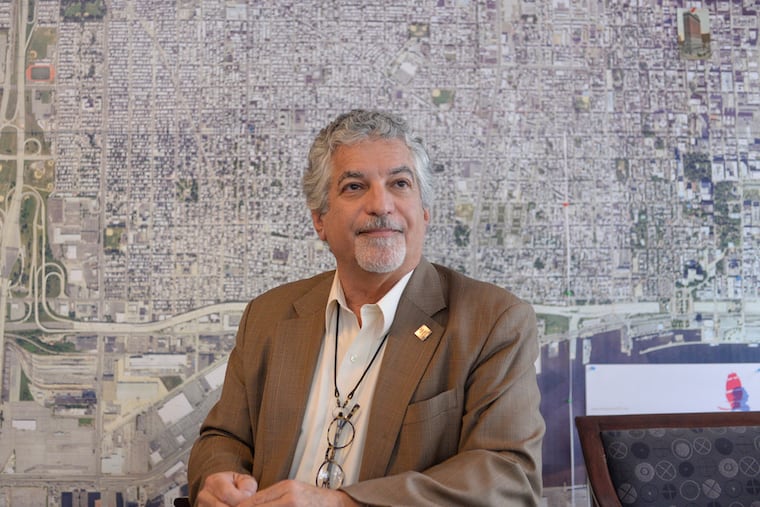Alan Greenberger looks back on his time as Phila.'s development chief
Alan Greenberger will end his seven-year run as deputy mayor for economic development and commerce at the end of the year.

Alan Greenberger will end his seven-year run as deputy mayor for economic development and commerce at the end of the year.
The Inquirer took a ride with Greenberger, 64, last week to talk about his time in office and some of the significant developments under his watch, including rewriting of the city's mammoth zoning code, redevelopment of the Gallery and Market East, and the makeover of the Divine Lorraine Hotel on North Broad.
Question: What was your economic development strategy coming into this new administration in 2008?
Answer:
The strategy was very much about making the city a more compelling place to live in, to work in, to invest in. . . . That's the goal. Then it divides into probably a dozen other subcategories of how you do that.
Q: Today, is it the same strategy? Did it change in the last seven years?
A: We refined it and specialized it some. For example, we created, in the Commerce Department, a director of international investments. We created a manager of entrepreneurial investments. These things didn't exist before. They exist now because they are very much a part of how we have to broaden our reach into other sectors of potential investing in Philadelphia.
Q: The rewriting of the zoning code - you knew coming in that was one of the big things the mayor wanted to do and you took up the task. Were you happy with the end result?
A: I had my list of details of things I wanted to get done that we couldn't get done because in the end, compromises had to be made. . . .
It's not perfect. The rules are not perfect. They are always going to have to be refined as we go along and see what works and what doesn't work. But overall, getting that done is a huge accomplishment.
Q: Some critics have said that this administration has been too pro-developer. How do you respond to that?
A: I think people are missing the point. This is not about developers, this is about an expansion of the economy and an expansion of the investment in the business world in Philadelphia. You want jobs? You've got to have businesses. . . .
There's a legitimate debate to be had about what people develop and how that fits into a growing city. But it is fundamentally a growth strategy.
Q: How would you grade yourself and the administration on preservation efforts in the city?
A: I believe totally that our Historical Commission, whose job is to apply the historical preservation laws of the city, which include findings occasionally of financial hardship around projects in particular, I think they do an outstanding job. . . . Very difficult judgment calls have to be made with preservation.
A lot of [church] buildings are in trouble. Same with theaters. They are of a type - big volumes, hard to reuse, expensive to pull off, very limited resources to make things happen.
Q: Do you have any regrets about the Boyd Theatre coming down?
A: It was a painful episode. I didn't like seeing the Boyd come down, either. On the other hand, the Boyd has been sitting there, empty, blighting an entire block, for a decade and a half. . . . I think in the end the Historical Commission reached the right conclusion. . . . I also think we are going to get a very good development down there.
Q: With all the growth in the city, what is your take on the tax abatements? Do you think it's time we get rid of them in Center City?
A: The tax abatement has worked. And, I think, if there's any adjustment to it at all, it needs to be looked at and thought out very carefully. It's not something you just kind of react to at a gut level.
Q: What would you like to see the next administration do?
A: Given the pressures of development that exist in the city, I hope the next administration. . . . that there's an evolution of a more strategic approach of how to, on one hand, encourage development in the neighborhoods, on the other hand stabilize those neighborhoods so that the people who have made longtime commitments to staying there can stay there.
Q: What's going to be the development legacy for the Nutter administration?
A: I think the real legacy is that we've made the city more friendly to business and investment both locally and from across the world.
I think we will get a lot of credit for bringing Market Street East back and we'll get a lot of credit for what we are doing in North Broad. . . . Both waterfronts.
Q: What comes next for you?
A: I'm not going to stay in city government. I'd like to stay involved in thinking about and doing things that relate to city building, in this city. What form that takes, I'm not sure yet.
(Questions and answers have been edited for space.)
215-854-5520 @InqCVargas